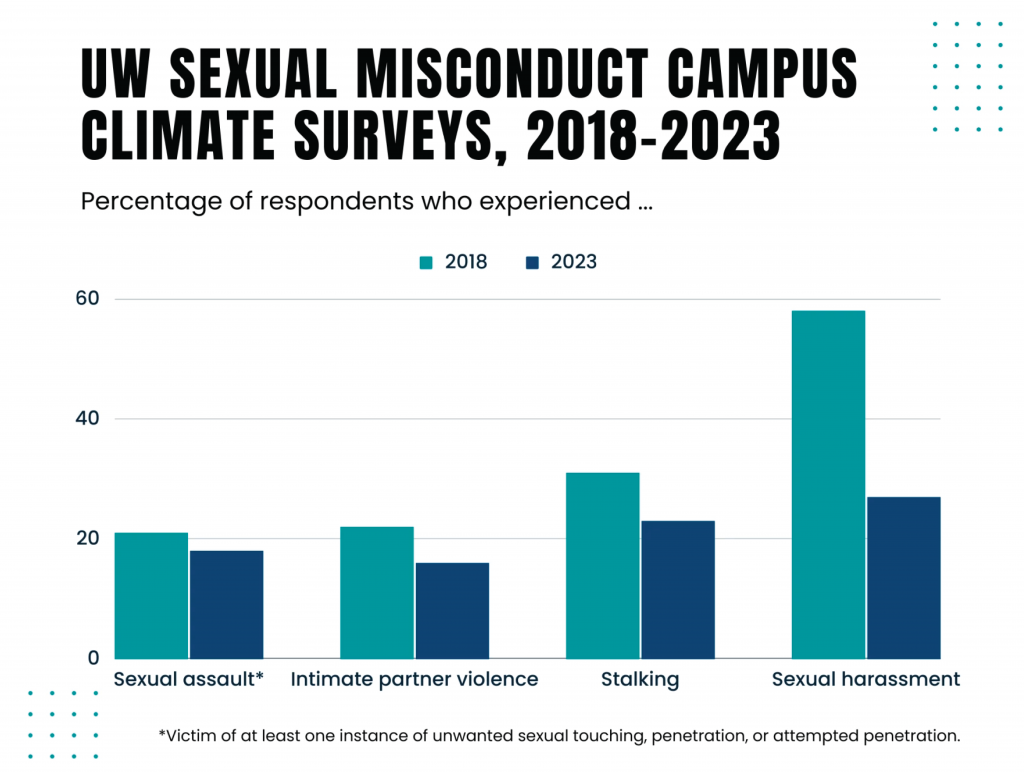University of Wyoming
Rolling Out Green Dot
After training staff on the Green Dot Strategy in January of 2020, Covid sent everyone home and created a barrier to implementation. But, UW was able to capitolize on the employees working at home by providing training online. Once back to campus, UW rolled out the early adopter targeted training sessions. Utilizing their varied instructors, they were able to reach fraternity/sorority, Athletics, ROTC, student government, and residence life communities.


Green Dot Day of Action
After reading their bell-curve implementation goal, UW rolled out an Overview to all incoming first-year students through the “Saddle Up” academic preparation week. Also, the UW semesterly Green Dot Day of Action sprung into action in collaboration with other prevention efforts.
Research Supported Effectiveness
The 2023 Campus Climate Survey indicated a significant reduction in harmful behaviors. The study found a 10 to 20 percent reduction in sexual assault and similar or greater reductions for stalking, intimate partner violence and sexual harassment. Additionally, students who went through Green Dot endorsed lower rates of IRMA (rape myth acceptance) and reported intervening in red dot situations than their peers who did not attend a training

Research
American Journal of Preventative Medicine
This study evaluated the Green Dot bystander intervention to reduce sexual violence and related forms of interpersonal violence in 26 high schools over 5 years and showed a significant decrease in sexual violence perpetration and also in other forms of interpersonal violence perpetration and victimization.
Read more ↗This article explores the methodology of a 5-year, CDC funded study of the Green Dot bystander program as it is implemented in high schools across Kentucky. It is the first of several articles in this special issue of the Violence Against Women journal which discusses the evaluation of Green Dot in high schools.
Read more ↗This study compared rates of violence by type among undergraduate students attending a college campus with the GreenDot bystander intervention with students at two colleges without bystander programs and explains that victimization rates were significantly lower among students attending the campus with Green Dot relative to the two other campuses.
Read more ↗
